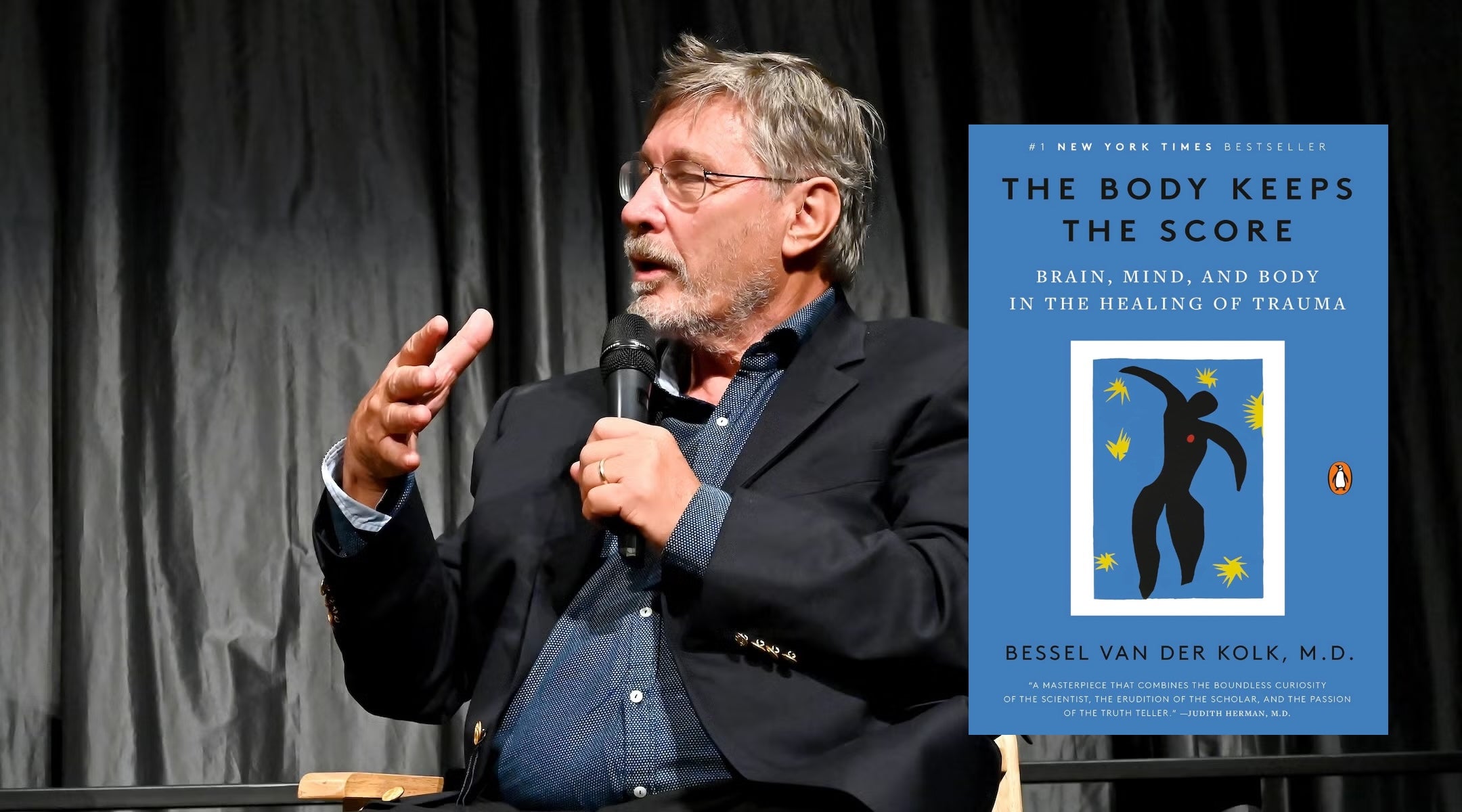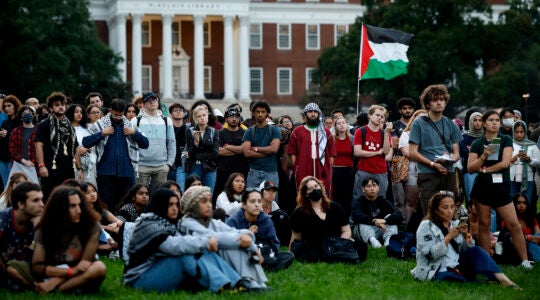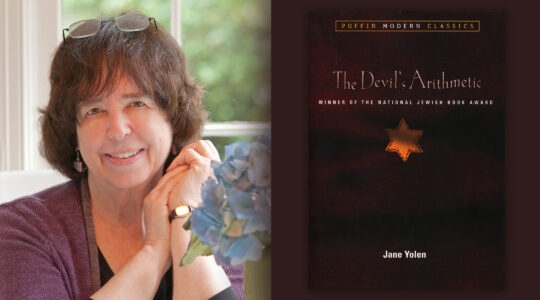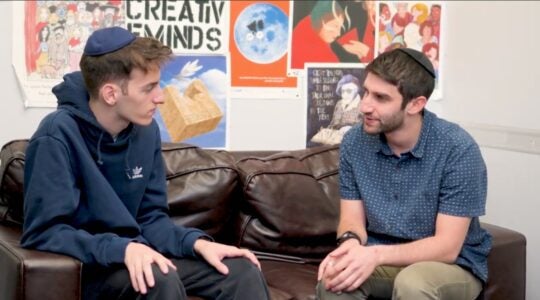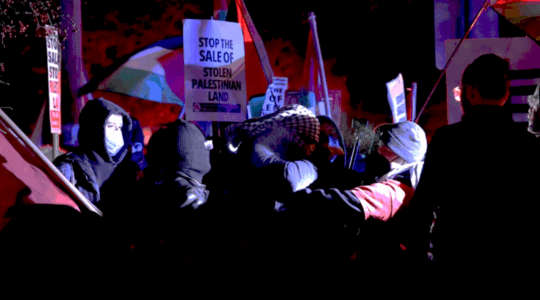For decades, Bessel van der Kolk, a psychiatrist whose ideas about how the body records pain helped millions find language for their suffering, has been regarded as the world’s leading expert in the study of trauma. His 2014 best-selling book, “The Body Keeps the Score,” turned him into an unlikely celebrity, a household name among therapists, yoga teachers and patients.
But earlier this month, at a bucolic retreat in the Hudson Valley, the 82-year-old van der Kolk triggered trauma and suffering among many of his students with strident comments on Israel.
According to interviews with several participants as well their written accounts, van der Kolk strayed from his course on trauma and neuroscience to share his political views on a variety of current events including the war in Gaza. They say he compared Israelis to Nazis, and doubled down on the analogy after being challenged by an audience member who told him she was the descendant of Holocaust survivors.
“At what was meant to be a trauma workshop, the person leading it inflicted fresh trauma on me and on several other Jewish attendees,” Avinoam Lerner, a Boston-based trauma recovery coach, said in an interview.
Van der Kolk’s remarks prompted several of the roughly 125 attendees to walk out and later to lodge complaints with the Omega Institute, the retreat center that hosted the event. Omega, a prominent global hub for alternative healing and spiritual practice, responded swiftly, condemning van der Kolk’s comments and announcing he would no longer be invited to teach there.
“Dr. van der Kolk made inappropriate and antisemitic comments that are deeply troubling and entirely inconsistent with Omega’s core values and community standards,” the institute said in a statement Friday.
Van der Kolk sent an apology letter to participants, retracting his claim about the war in Gaza and tracing the reaction he shared to his early life. He was born in the Hague in 1943.
“I want to express my deep regret for talking about what is happening in Gaza being equivalent to what the Nazis did in the 1940s,” he wrote. “It was a gratuitous, offensive, inaccurate and completely unnecessary comment, rooted in my own identification with children in bombed out cities during, and shortly after, World War II.”
Van der Kolk did not respond to a request for an interview.
As word of the incident spreads, the fallout is rattling both the community of therapists for whom van der Kolk is a hero and the broader wellness world, in which Omega occupies a unique place.
Founded in 1977, Omega has long been a center for spiritual and healing movements, offering courses in meditation, yoga, psychology and holistic health. To be banned from teaching at its campus in Rhinebeck, New York, is a sharp rebuke, one that underscores how institutions once seen as removed from politics are being drawn into the debates and divisions unleashed by the Israel-Hamas war.
For many Jewish therapists in particular, the episode is part of a broader reckoning. Since the October 2023 Hamas attack and Israel’s subsequent war in Gaza, many have spoken about feeling isolated or judged within professional settings, especially as conversations about trauma and oppression spill into ideological commentary.
Speaking about antisemitism in her field, Halina Brooke, director of the Jewish Therapist Collective, said, “What was once the exception has now edged closer to being the rule.”
“Especially alarming when it’s a trauma icon at the helm, this behavioral trend has saturated our training programs, private group practices, community mental health centers, and especially the online discourse about mental health,” said Brooke, who founded her group a decade ago.
Van der Kolk, whose career began in the late 1970s treating Vietnam veterans with post-traumatic stress disorder, has built his reputation on the idea that trauma is embedded in the body and requires not only talk therapy but also physical and emotional practices to heal. His lectures, which feature neuroscience, picking apart case studies and philosophical reflections, attract audiences worldwide.
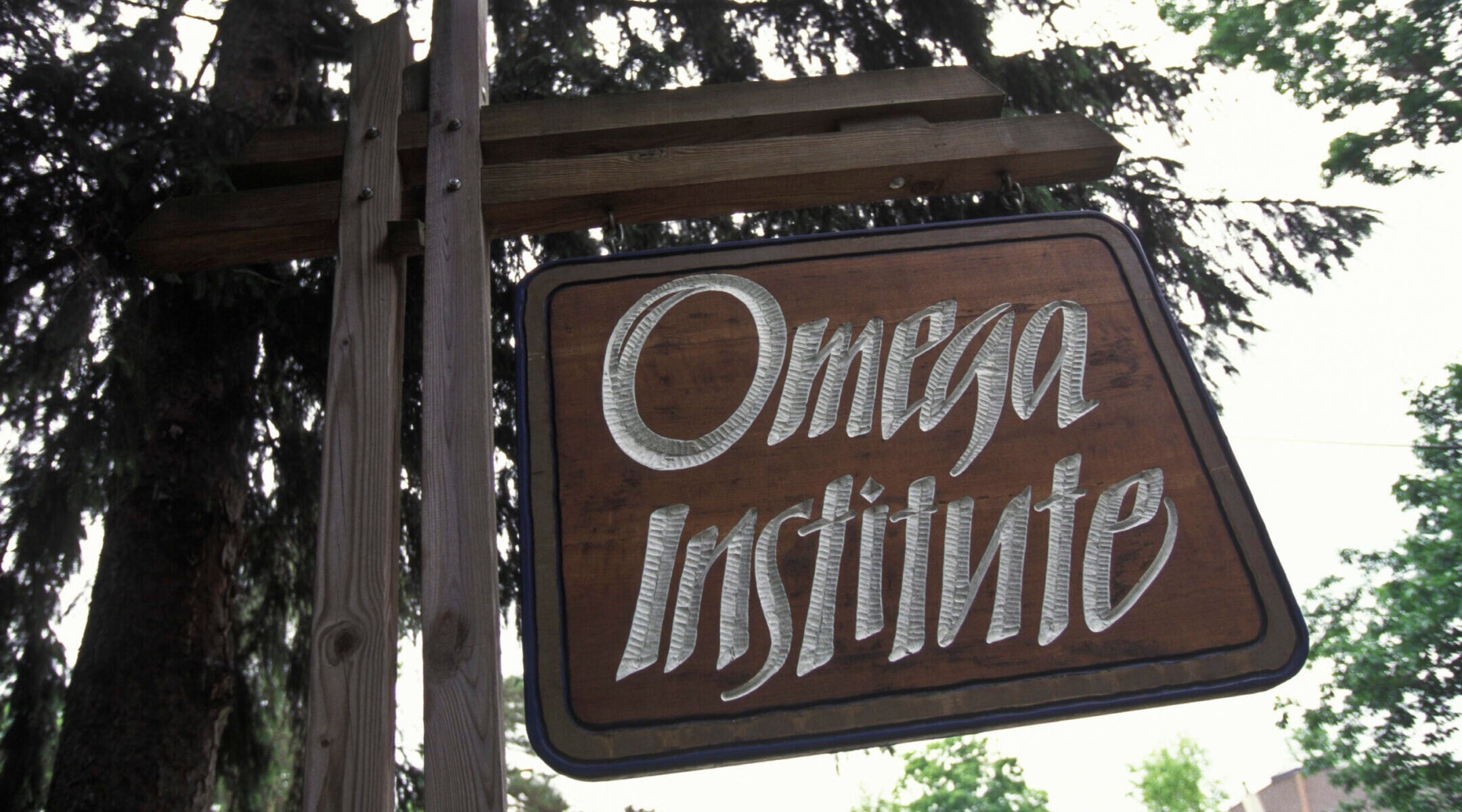
The sign for the Omega Institute For Holistic Studies. (Photo by James Leynse/Corbis via Getty Images)
Several participants in the August retreat at Omega said the episode was especially jarring because of the reverence they had long held for van der Kolk. The remarks came on the first day of a five-day program that cost up to $585 in tuition.
Among those in attendance was Judy Leventhal, co-author of the “Small Miracles” inspirational book series, a New York Times bestseller in the 1990s and 2000s. A psychotherapist and longtime student at Omega, Leventhal said she was stunned when van der Kolk offhandedly compared the humanitarian crisis in Gaza to the Holocaust.
She spoke up to clarify his meaning, but after an exchange in which he insisted the comparison between Israelis and Nazis was valid, she stood and walked out.
“I am a psychotherapist so I am trained to think before I talk, but when I confronted him it all disappeared and what came out was visceral,” Leventhal said in an interview. “I felt the legacy trauma of millennia. My body kept the score.”
Moments later, people still inside the lecture hall heard her screaming, ‘How dare you?’ She was addressing Licia Sky, van der Kolk’s wife and co-leader of the workshop, who was defending him.
“I must have connected to the scream of my ancestors as they were shut into the gas chambers knowing that the gas will soon consume them and their beautiful children which they clutched onto with one hand while their nails scratched the cement walls as they all finally fell to the ground,” Leventhal later wrote in a poetic account of the incident.
A small group of attendees gathered around her outside, including Lerner, the trauma recovery coach, who is an Israeli army veteran.
He said he recognized her outburst as an expression of profound pain and shared her reaction, while also feeling horrified as a practitioner, describing van der Kolk’s conduct as the very antithesis of his teachings.
“There was no context, no invitation to discuss, just a sweeping and dehumanizing statement by someone in a position of authority,” Lerner said. “Empathy and restraint are qualities that are foundational to trauma work.”
Lerner said that the moment following Leventhal’s exit and screaming, should have given van der Kolk pause but that he carried on without inquiring or attempting to find repair.
“Dr. van der Kolk has spent decades teaching us that the body holds onto trauma long after the moment has passed,” Lerner wrote in an account of the incident. “But he seemed unaware — or unwilling to acknowledge — how his own words were landing in the bodies of the people in front of him. Jewish participants. Trauma survivors. People who opened their hearts. People who trusted him with their nervous systems.”
JTA has documented Jewish history in real-time for over a century. Keep our journalism strong by joining us in supporting independent, award-winning reporting.
